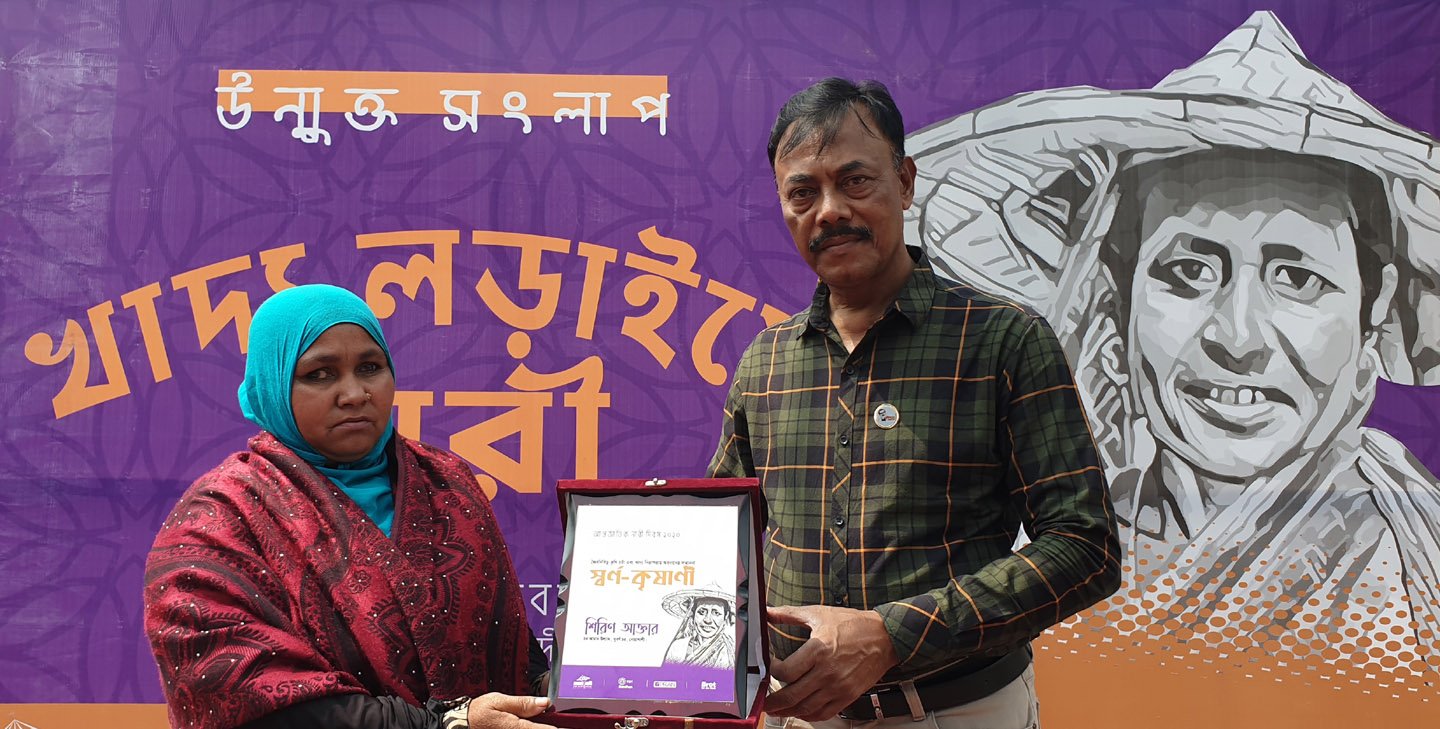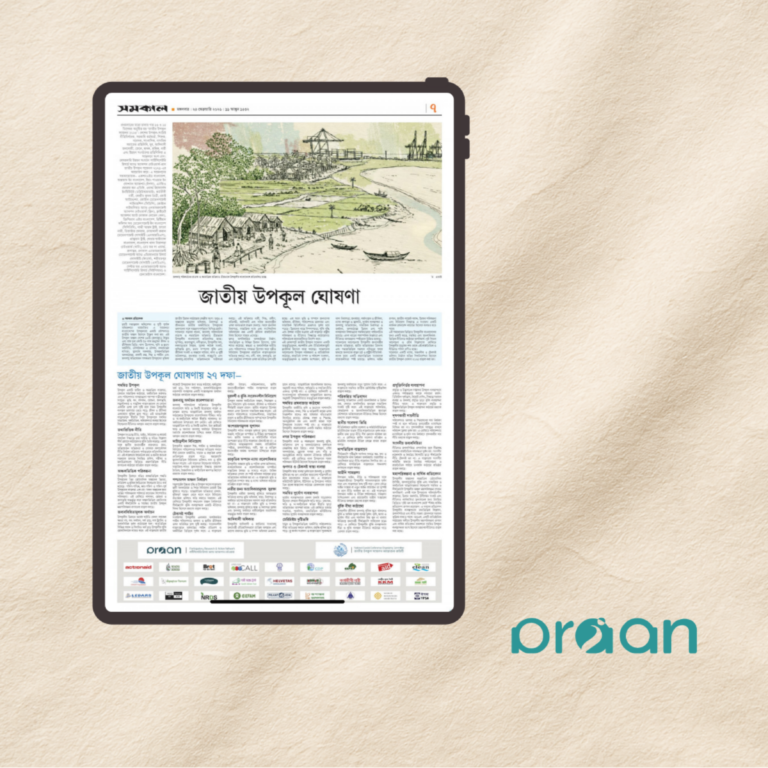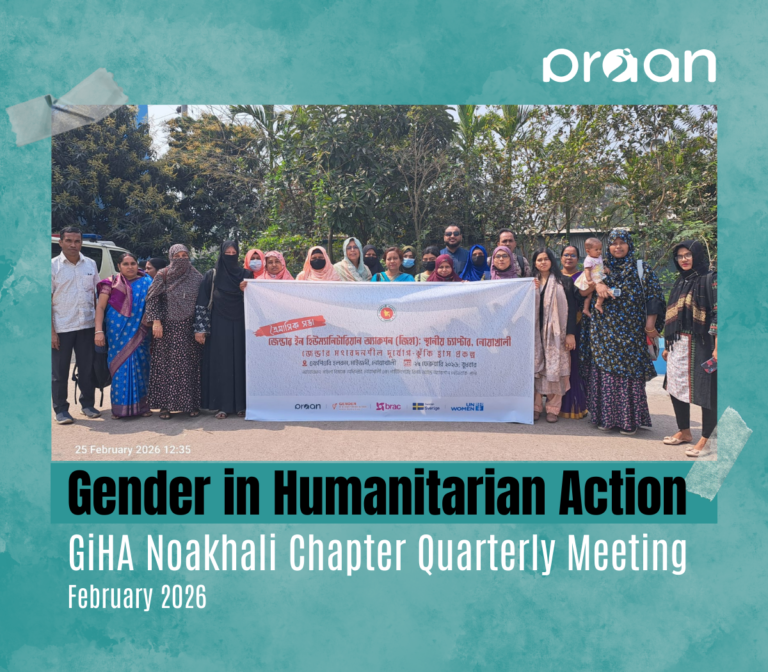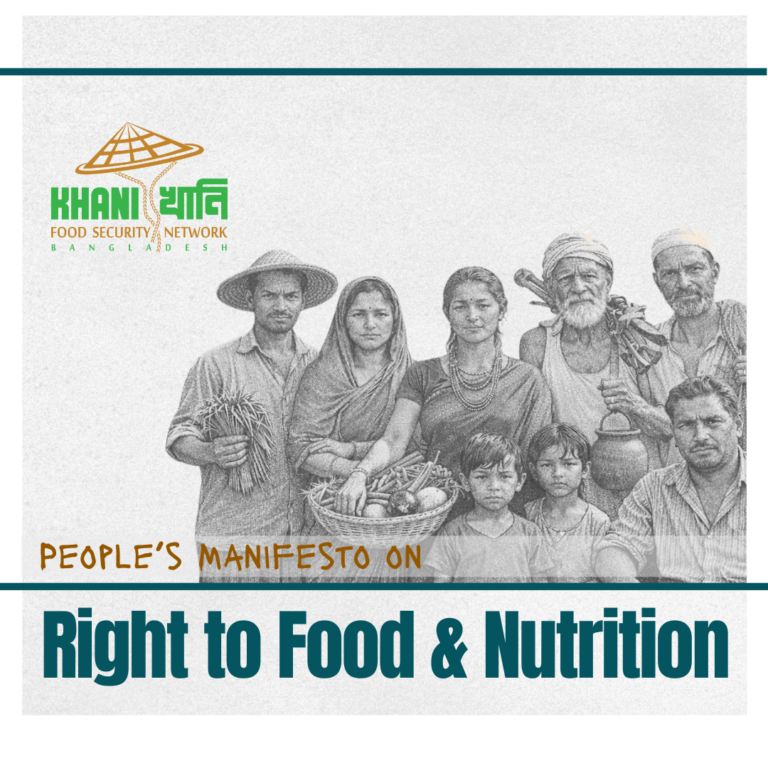
A total of 68.1% of women in Bangladesh are directly or indirectly engaged in agriculture. The women engaged in farming, besides all the household works, 74% of them rear livestock, 63% preserve local varieties of seeds, 40% grow vegetables and fruits, cultivation and post-harvest activities, agricultural food procession and still they do not have recognition of the state as woman farmer. So, the woman farmers need to be respected and recognized by the state to keep the agriculture, economy and food security trend the country.
The demand was raised in an open dialogue titled ‘Women’s Power in Food Struggle’, jointly organized by Participatory Research Action network-PRAN, Food Security Network-KHANI, and supported by Bread for the world at Noakhali Press Club premises on March 8. Women farmers, development and human rights activists, woman rights activists, journalists and people from different professions participated in the event.
Chairman of Noakhali Sadar Upazilla Parishad AKM Shamsuddin Jehan attended the function as the chief guest. Nurul Alam Masud, Secretary of Food Security Network-KHANI, led the dialogue.
Gandhi Ashram Trust director Raha Nabo Kumar, Monir Ahmed, Chair of Kendriyo Krishok Moitry, Nur Nahar Rini- Chair of We Can, Woman farmer Nasima Akter, Laila Parvin- Chair of Nari Odhikar Jot, Fazlul Haque Badal- Ex Commander of District Muktijoddha Command, Abdul Awal- Executive Director of Noakhali Rural Development Society participated and delivered their speech in this dialogue.
Woman farmer Shirin Akhter from Suabarno Char was awarded ‘Swarno-Krishani’ for her outstanding contribution in practicing organic agriculture and thus food security. The speakers said that the women are considered to be just ‘collaborator/ coordinator/assistant’ in the agriculture of Bangladesh. Discrimination and negligence are in various fields.
Over the last seven years, although the participation of women in agriculture has increased, rural women has ownership of only 2% to 4% of land and the rest of 96% ownership is owned by men which is impeding the women to enjoy their rights fully as well as obstructing the assurance of food security as a whole.
Despite being the prime artisan of agricultural activities, not being recognized as ‘farmer’ by the state, having no equal access to land, not getting fair value of the food they produce, not getting government-provided services equally, in reality, are considered as violence against women.
The participants in the open dialogue urged to express solidarity against the continuous exploitation and oppression of the capitalist and patriarchal system to draw an end to all forms of violence against women.




